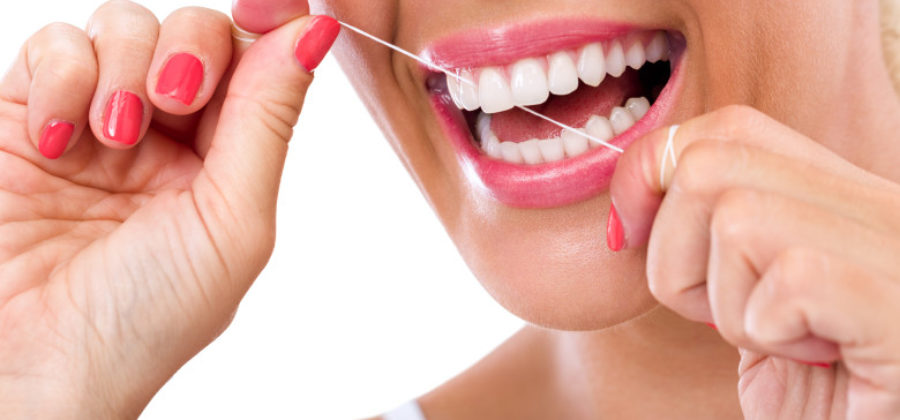Let’s take a moment to pay tribute to one of the most overworked and often under appreciated parts of the human body: our gums. You hear how important it is to brush, and how having healthy teeth is an important goal for all of us. With all this talk about teeth and bones, sometimes we forget about the humble gums, whose sole job is to hold our teeth firmly in place, protect them from the elements, and keep our entire mouth nourished and healthy. In short, we need healthy gums in order to have healthy teeth, and a healthy body, too.
We know that gums are often under-valued because as of 2012, a CDC report found that
more than 47% of adults living in the United States have some form of gum disease.
That rate goes up to a whopping 70% of adults over the age of 65.
What Is Gum (Periodontal) Disease?
Gum disease is caused by two things: 1. the presence of bacteria in the mouth and 2. places for that bacteria to congregate and stay. Most often, bacteria collect on buildup (calculus) around and below the gum line. This buildup causes inflammation and irritation, triggering an immune response by the body. The mildest form of gum (periodontal) disease is called gingivitis. Left unchecked, the condition can create periodontal “pockets” or areas where the bacteria can collect deeper under the gum line. Gingivitis can progress to periodontitis, where the bacteria, inflammation and the body’s continual response can actually break down the connection between the gums and the teeth.
What are symptoms of gum disease?
In many cases, people in the early stages of gum disease may not experience any pain or may have very mild symptoms that are easily ignored. Some of the more severe symptoms include:
- Bad breath that won’t go away
- Red or swollen gums
- Tender or bleeding gums
- Painful chewing
- Loose teeth
- Sensitive teeth
- Receding gums or longer appearing teeth
Gum disease affects more than just your mouth
Untreated gum disease can result in the loss of teeth, but it doesn’t just stop there. Gum disease can have major impacts on other body systems and has been tied to other serious health issues, or can make certain existing conditions worse.
Lungs & Respiratory System
 A study in 2011 found a relationship between the presence of periodontal disease and the incidence of respiratory illnesses including pneumonia, COPD (chronic obstructive pulminory disorder) and acute bronchitis. If the body is busy fighting inflammation and infection in another area of the body, such as the mouth, its ability to fight infections such as COPD or bronchitis may be limited or compromised.
A study in 2011 found a relationship between the presence of periodontal disease and the incidence of respiratory illnesses including pneumonia, COPD (chronic obstructive pulminory disorder) and acute bronchitis. If the body is busy fighting inflammation and infection in another area of the body, such as the mouth, its ability to fight infections such as COPD or bronchitis may be limited or compromised.
Heart Disease & Stroke
Research has identified a variety of common risk factors associated with gum disease as well as heart disease and risk of stroke, including age, genetics, smoking habits, presence of diabetes, and more. More research is underway to examine a possible connection between the type of bacteria and chronic inflammation that occurs in the mouth, and bacteria that collect in the arteries which can cause certain types of heart disease.
Fertility & Pregnancy
According to the results of a recent study, women who have active gum disease take, on average, two to three months longer to conceive than women who do not have gum disease. Fertility specialists and IVF (in-vitro fertilization) clinics often require women who are trying to conceive or who are attempting IVF to show that they either do not have, or are actively in treatment to correct gum disease.
Nearly 40% of women who are pregnant develop gum disease at some point. In many cases with extra care and monitoring by a dentist, pregnancy-related gum disease will go away on its own. However, pregnant women who have active gum disease are more likely to deliver either prematurely or have babies with unexpectedly low birth weight.
One of our Bloggers has something to share about gum disease…

40% of pregnant women will be diagnosed with gingivitis. I am one of them. Here’s what I’m doing about it!
Jessica F., a blogger and contributor for 1st Family Dental recently discovered at her last dental checkup (much to her dismay) that she has pregnancy-related gum disease! She has been working hard on improving her at home oral hygiene routine, as well as a few other things to help address her gum disease. Jessica will be guest blogging for us through the month and keeping us up to date on her progress and her real-life experience with gum disease. You can follow her story here.
Jessica will check in with updates throughout the month to let us know how she has been doing.
Prevent gum disease in 3 steps
If nearly half of all adults have some form of gum disease, should we just give up and expect to live with it? Absolutely not! Gum disease is treatable and most of the time can be fully cured. Your dentist can often detect the presence of gum disease or the signs it may be developing before you notice symptoms, so the best defense is a great offense.
- Brush your teeth every day to remove this bacteria from the surfaces of your teeth, and to help avoid cavities.
- Floss each day in order to remove the bacteria from between your teeth and around the gum line.
- Regular checkups and professional cleanings by a dentist or hygienist will help to remove any plaque, build-up (calculus) and bacteria that we aren’t able to reach during your regular oral hygiene routine at home.
![]()
Caring for your teeth and gums has also been found to reduce overall healthcare costs, so it is indeed an investment in your total body health. http://www.ajpmonline.org/article/S0749-3797(14)00153-6/abstract?cc=y




8 Comments
Leave your reply.